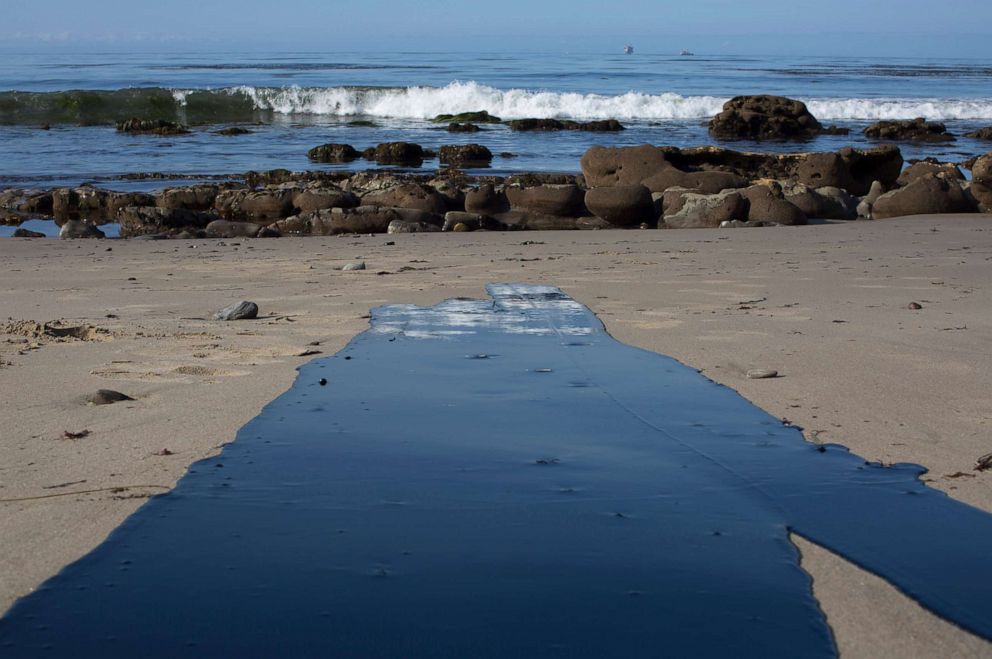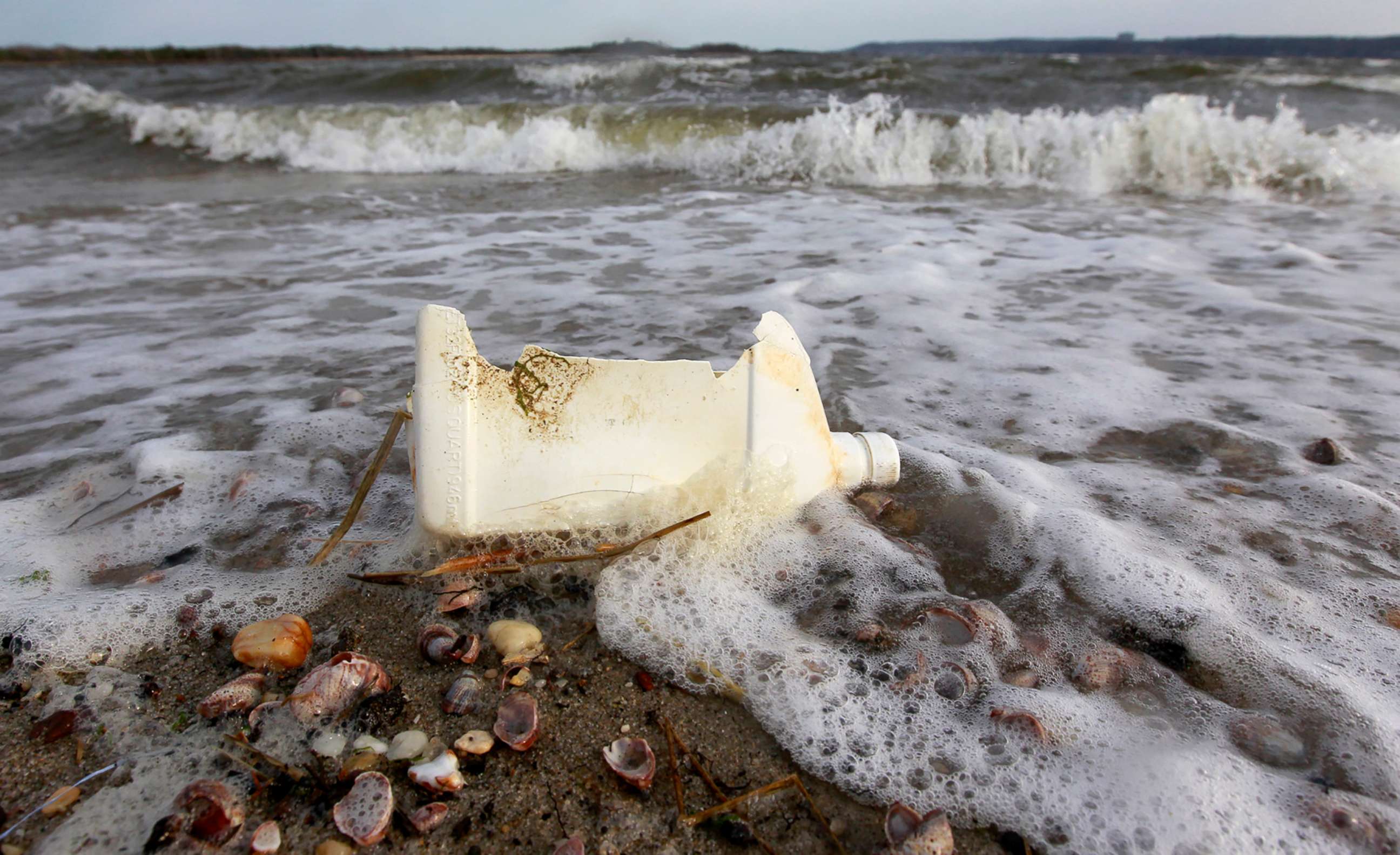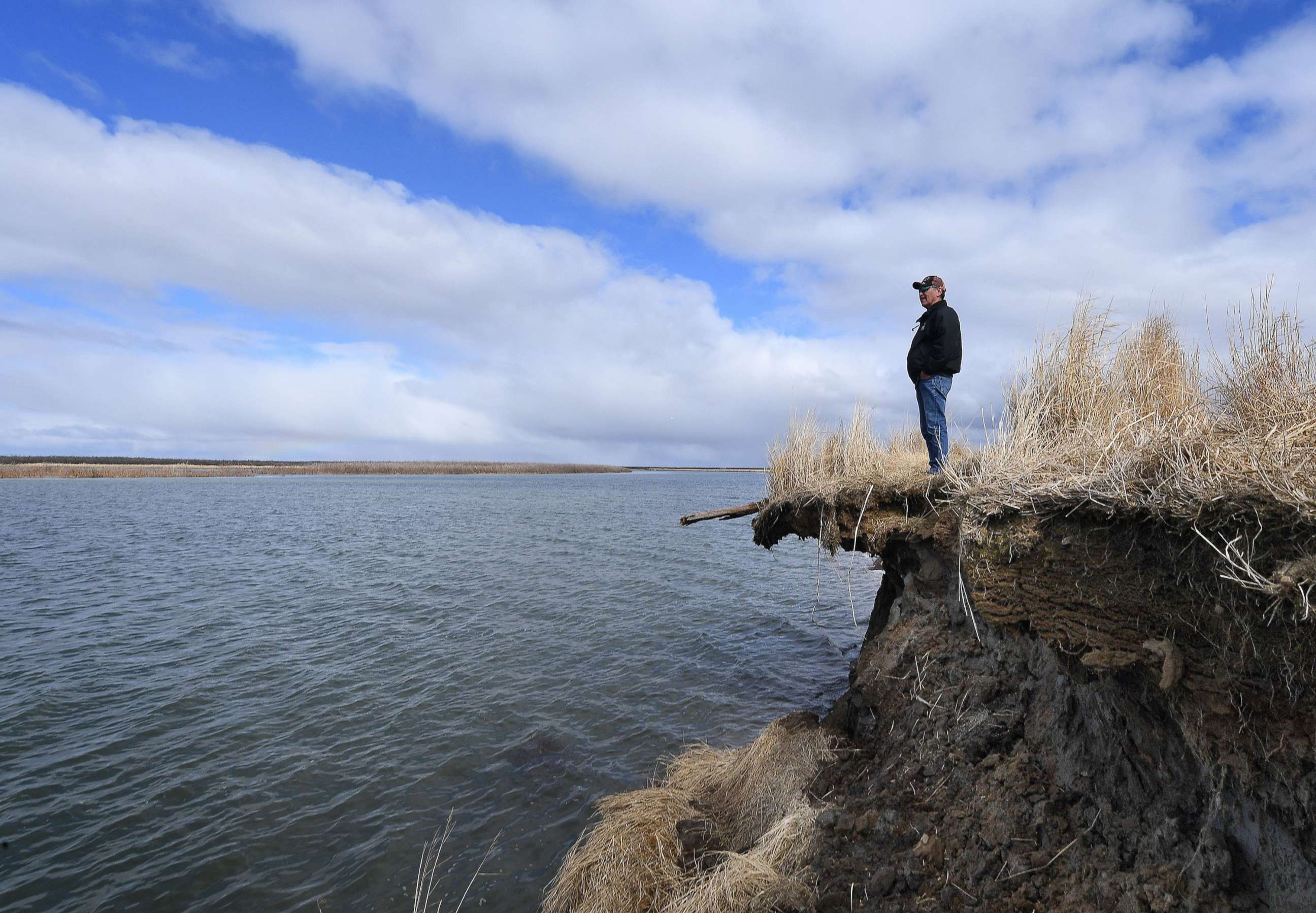Ahead of Paris climate deal withdrawal, Trump admin makes $1.2B investment in oceans
The new funding addresses environmental degradation, but not climate change.
Less than two weeks before the Trump administration is expected to formally begin withdrawing the United States from the Paris climate accord, its top diplomat for the environment has announced $1.21 billion for the oceans.
The new funding, intended to create a "sustainable blue economy" that protects the world's oceans, is emblematic of the administration's efforts to address environmental degradation without taking the action scientists say is needed to combat climate change, even as it devastates the oceans.
"We all want to leave our grandchildren a healthy planet," a senior State Department official told ABC News.

But the White House has slashed regulations on methane and greenhouse gas emissions, coal power plants, offshore drilling, fracking, fuel efficiency standards, oil pipelines, habitat protection, logging, endangered species, clean water, light bulbs and more. The administration has also slashed funding for the United Nations' Green Climate Fund and proposed cuts for the Environmental Protection Agency (EPA), National Oceanic and Atmospheric Administration (NOAA) and the Energy Department.
Monday, Nov. 4, is the first day the administration can initiate a withdrawal from the Paris climate agreement, the landmark accord signed by every nation to address climate change by promising to reduce greenhouse gas emissions, monitoring each other's progress and strengthening their commitments to do so over time.
If the administration seizes the opportunity on the first possible day, the U.S. would formally leave the agreement one year later -- on Nov. 4, 2020, just one day after the presidential election.
The senior State Department official declined to comment on the administration's plans, instead telling ABC News, "the president has made a decision to step away from the Paris climate accord. But we're going to be right at the table in terms of the U.N. framework for climate, so we expect to participate in all those discussions."
A State Department spokesperson said the administration's position on the agreement "has not changed. The United States intends to withdraw from the Paris agreement," but declined to give a date.

The spokesperson defended the administration's "balanced approach that promotes economic growth and improves energy security while protecting the environment." EPA Administrator Andrew Wheeler made similar remarks earlier this year, saying safe drinking water, plastic pollution and other litter in the ocean, drought in western states and water infrastructure are a bigger challenge than climate change.
That appears to be the aim of new funding measures announced Wednesday by Keith Krach, U.S. undersecretary of state for economic growth, energy and the environment, at the "Our Ocean" conference in Norway.
The $1.21 billion fund includes 23 new commitments to "promote sustainable fisheries, combat marine debris and support marine science, observation, and exploration," according to the State Department, which did not provide further details. That would bring total funding numbers for the "Our Ocean" conference to $4.3 billion since it was started in 2014 -- making this year's announcement comparatively significant.
Krach said the U.S. "remains ready and committed to working with partners from all countries and sectors to support a healthy and productive ocean and a sustainable blue economy."
In addition to challenges with debris and plastic pollution, which this funding would address, the oceans have suffered dramatically because of climate change. A U.N. report last month found that oceans have absorbed over 90% of the heat from global warming in the last 50 years and excess carbon dioxide, which raises the temperature of the water, makes it more acidic and displaces oxygen, which can be devastating to sea life.
Krach is the most senior Trump administration official to attend the "Our Ocean" conference, which was started by former Secretary of State John Kerry during the Obama administration. In 2016, he hosted the conference in Washington, with speeches by President Barack Obama and actor Leonardo DiCaprio.

In contrast, the U.S. delegation last year was led by Judith Garber, the principal deputy assistant secretary of state for oceans and international environmental and scientific affairs, while Kerry himself attended as a private citizen.
"The notion of one nation first is not the way to protect the ocean," Kerry said, taking a shot at Trump's "America First" foreign policy.
The more robust U.S. team this year includes officials from NOAA, NASA, the U.S. Agency for International Development and the U.S. Trade Representative's office.
While $1.21 billion is a large contribution for the Trump administration, critics say the emphasis on what Krach called "public-private partnerships to create innovative solutions" is not enough, given the urgent threat of a warming planet and changing climate.
Another U.N. report by a panel of hundreds of scientists warned last year that greenhouse gas emissions need to be drastically reduced by 2030 or the planet will reach an irreversible tipping point -- a finding the Trump administration has dismissed.
ABC News's Stephanie Ebbs contributed to this report.




